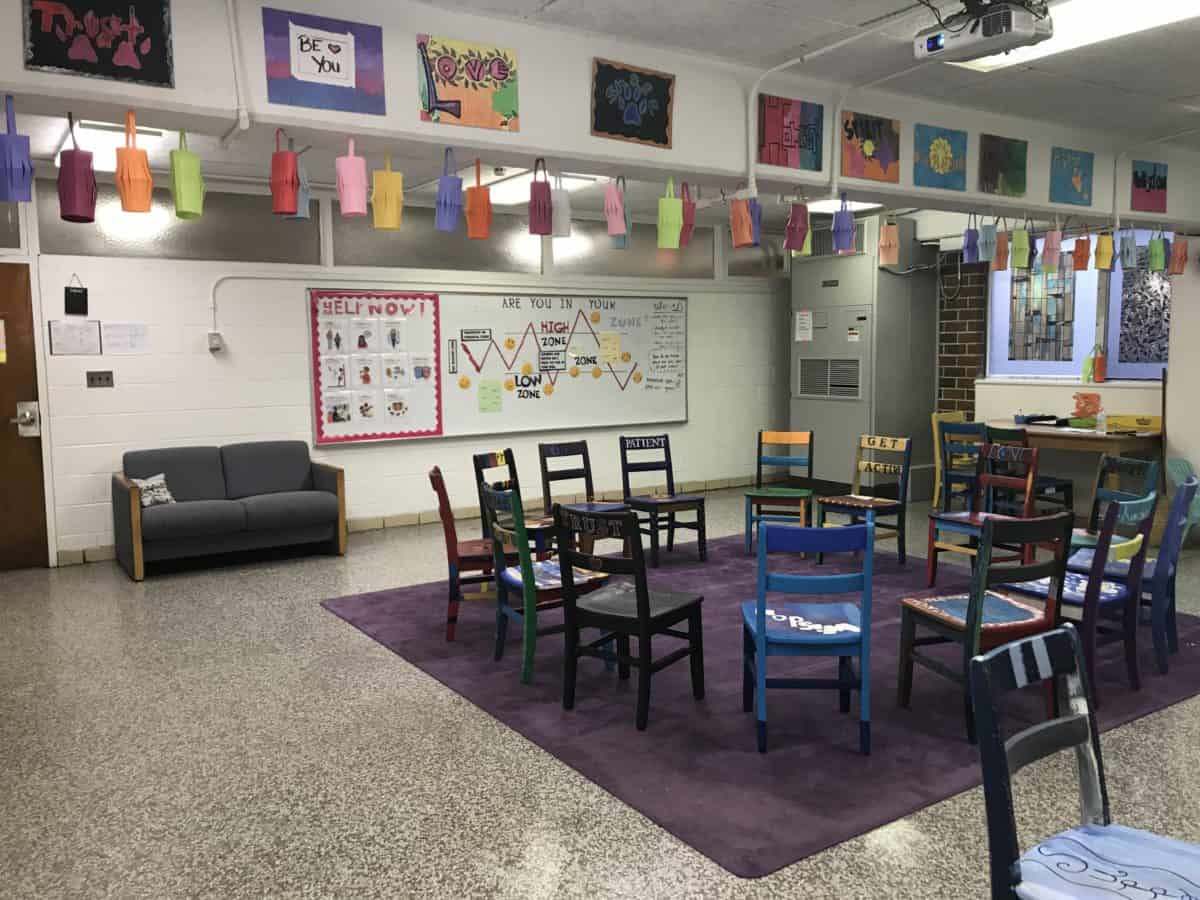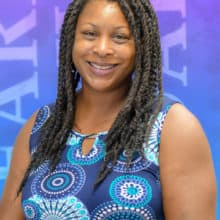
This is the second piece in a week-long series of perspectives on innovative practices in North Carolina public schools. Follow along with the rest of the series here.
D.C. Virgo Preparatory Academy is a K-8 laboratory school working in partnership with the University of North Carolina at Wilmington. Our school model is based on inquiry, reflection, and innovation.
We bring these principles into all aspects of our school structures and culture to meet student needs and build skills that will help them navigate the world. Our task, as a result of the specific legislation governing laboratory schools, is to move the educational needle for students who have been historically underserved by traditional school systems and structures.
According to the American Civil Liberties Union, zero-tolerance policies often criminalize minor offenses and lead to students being criminalized for behavior that should be handled within the school. Students of color are especially vulnerable to these trends that push students out of our learning environment. Understanding these outcomes and pursuing opportunities for our students to thrive academically and socially, our school set out to rethink traditional forms of school discipline and create structures that prioritize learning and resilience.
We have taken ideas from community resilience, restorative justice, and social emotional learning to redesign systems that support student learning and behavior. As we are early adopters of this work, we are not following an established model and are instead shaping our practice to fit the needs of our students. We continually monitor trends in student reporting, classroom observation, and discipline data so that we are able to adapt our systems and respond to shifting needs within our school community.
Changing mindsets
As educators, we recognize that trauma comes in many forms and that our students have likely experienced community or family trauma. We understand that behavior is a form of communication. It isn’t enough that our school is trauma-informed. We work to create systems of support for our students and staff that are resiliency-focused.
It is imperative to teach students how to use effective speaking and listening skills to state their needs while managing conflict with peers or adults. Our focus is on teaching and learning in all areas, especially social emotional and behavioral skills.
We began with a shift in mindset from punishment to a focus on resilience and restorative practices. Staff were trained in Restorative Circles. This allowed adults to get comfortable being open and vulnerable with students through guided dialogue. The circle process also allows all students’ voices to be heard while building effective speaking and listening skills.
In collaboration with the New Hanover County Resiliency Task Force, our staff was also trained in the Community Resilience Model. This helped staff to learn about and focus on the biological impacts of stress and trauma. It also gave our staff tools to manage their own stress and build their own resiliency when they are bumped out of their resiliency zone. From this training, our staff has developed resources to support students and families.
Changing actions
Restorative circles
Our teachers and support staff use this knowledge to form new habits and build our new culture. We integrate Sanford Harmony with restorative circles in every classroom every day for students to speak and listen to each other as they practice restorative language. Teachers use these daily circles to build community, model and discuss expected behaviors, and validate student voice. The community built in these daily circles permeates each and every interaction throughout the rest of the day.
We’ve built upon these daily restorative circles with guided conflict circles to work through problems between students as well as between students and staff, when needed. Students and staff are encouraged by our restorative committee to participate in circles with the hope that, over time, they will self-advocate and request the circles themselves. We are working to include these circles both before and after necessary suspensions.
Restorative room and “Take Ten”
To foster and improve resiliency, our social work team created the Restorative Room as a refuge for students to “take ten” and calm down when they are bumped out of their resiliency zone. This space has muted lighting, student-created artwork on the walls and furniture, soft nature sounds, and various stations for students to de-stress and self-regulate. Students may draw, write, listen to a meditation app, breathe along with a visual aid, play in a rice table, or sit on the couch and talk it out.
When a student needs to “take ten,” a teacher calls the restorative room. A social worker or social work intern meets the student in the classroom and escorts them to the restorative room. Students talk through their needs and feelings and return to class after their ten minute break. If a student would like more support, they are able to make an appointment with the social worker to talk further.
Restoration committee
Occasionally, we encounter problematic behaviors that are not able to be managed in the classroom or with the support of the restorative room. These behaviors are referred to our restoration committee. The committee was created to allow for fair, unbiased decision-making regarding behavior and discipline.
In addition, it seeks to heal relationships through creative and alternative consequences that focus on teaching desired behaviors and provides an opportunity for the team to discuss all factors that may be contributing to the behaviors and determine whether support through Multi-tiered System of Supports (MTSS) is necessary. Students are given a voice and encouraged to advocate for themselves. They also have an opportunity to reflect on their behavior through guided questions. The committee is comprised of an administrator, the school social worker, and a teacher assistant.
Changing outcomes
We are in our first year of implementation and continue to learn from this process. It has taken time for students to believe their voices were going to be heard and that a fair consequence would replace standard punishment. It has taken time for teachers to learn, believe, and trust that hearing and respecting students’ voices will improve school culture and student behavior. We are currently seeing a reduction in significantly problematic behaviors. We anticipate a reduction in behavioral/discipline referrals and an increase in student engagement and academic achievement.
We look forward to future iterations of resiliency-focused practices at D.C. Virgo Preparatory Academy. We will continue to learn and grow as a staff by participating in the Life is Good Playmakers program. We are also working towards the development of a student-facilitated restoration committee.
Students will participate as members of the committee and take more responsibility for guiding its work. We believe this will encourage student ownership and agency as we develop and strengthen a restorative and resiliency-focused school culture. We are also working to create student-developed videos to share school-wide behavioral expectations. We are presenting them weekly school-wide throughout the school year.
Ready for change?
For schools who wish to develop restorative and resiliency-focused practices to meet the needs of their students, we recommend focusing all energy on adults first. In learning how to incorporate restorative language and practices into a school environment, it is important to practice with one another before implementing with students. It is also imperative to closely monitor school staff to hold all school staff accountable and provide ongoing coaching.
To build a restorative committee in your school, start with a team that includes an administrator, social worker or school counselor, teacher or teacher assistant, and other important stakeholders. Gather input from all school community members to explore needs, possible challenges, and available opportunities. Plan school-wide initiatives at least six months in advance to prepare staff for this shift. This includes preparing professional development opportunities, initiative timelines, staff support, and expected goals and outcomes.
Moving from traditional punishment to resiliency-focused practices that allow students to reflect, learn, and advocate for themselves is a major mindset and culture shift, but it is so important as we help students build skills necessary to be successful in classrooms and in life.
Editor’s note: Editing support for this piece was provided by Dr. Robert Smith and Kayce Smith of UNC-Wilmington’s Watson School of Education.


